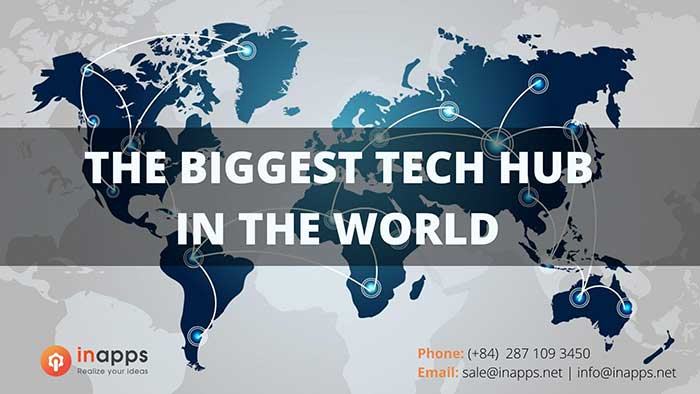When it comes to the biggest tech hubs in the world, you may instantly think of Silicon Valley, USA – the undisputed king of tech hubs, Silicon Valley is home to giants like Apple, Google, Facebook, and Tesla. However, what are some other biggest tech cities in the world?
But first, how do you define “biggest tech hubs”? Cities being considered Innovation Hubs have been influenced by factors such as proximity to a research-intensive university and access to a vibrant and energetic lifestyle that will attract young professionals, thereby contributing to a skilled talent pool. Aside from Silicon Valley/San Francisco, what are some other cities that satisfy our Top 10 Biggest Tech Hubs In The World requirements?
Key Summary
- New York – NYC evolved from 1990s dot-com beginnings to employ 369,000 people in tech at $48/hour average wages. Housing companies like Peloton and JPMorgan Chase, the city benefits from initiatives like “Pilot: New York City” to enhance urban innovation.
- Shenzhen, China – Transformed from fishing village to major manufacturing center with giants like Huawei and Tencent. With 12 million tech workers and prestigious universities, Shenzhen thrives despite US-China tensions.
- London – The world’s third-largest innovation hub attracted $19.8B in VC funding (2022), including $9.7B for fintech. With 125 incubators and entrepreneur-friendly visa policies, London offers excellent access to investors and talent.
- Bangalore, India – “India’s Silicon Valley” hosts Infosys, Wipro, and $40B worth of R&D centers for Amazon, IBM, and Microsoft. Government initiatives like Startup India have accelerated growth in this hub employing 4.1 million people.
- Tel Aviv – With the highest startups per capita globally, Tel Aviv excels in AI (40% of startups) and cybersecurity ($6.5B annual exports). Government programs like Tnufa fund provide substantial grants to innovative entrepreneurs.
- Singapore – This tech powerhouse hosts Amazon, Microsoft, and 4,000+ startups since beginning its transformation in 1981. Tech is projected to support 45,000 jobs by 2027 in this low-tax environment with excellent infrastructure.
- Toronto – The “AI Capital of the World” leverages top universities to attract offices for Shopify, Google, and Apple. A diverse workforce and incubators like MaRS Discovery District create an ideal environment for tech innovation.
- Stockholm – Europe’s most innovative city birthed Ericsson, Klarna, and Spotify. With 3,000 startups and more unicorns per capita than anywhere except Silicon Valley, Stockholm’s 101,000 tech workers benefit from strong government support.
- Tokyo – A leader in robotics and the world’s third most competitive financial center, Tokyo excels in fintech innovation and recognizes excellence through the Tokyo Financial Award established in 2017.
- Ho Chi Minh City – This emerging Southeast Asian hub hosts 55.3% of Vietnam’s IT workforce with numerous software development companies. Government smart city initiatives aim to grow online businesses by 43% within five years.
1. New York
The NYC tech journey began in the 1990s with Internet companies like Prodigy, Razorfish, DoubleClick, Yoyodyne, and The Mining Company (later About.com) dominating the dot.com landscape. Venture capitalists like Fred Wilson and Jerry Colonna contributed to the growth through Flatiron Partners, a leading venture capital firm.
The late 1990s saw a burst of startup activity across various industries, but the subsequent dot.com market collapse led to a decline. However, the city’s tech scene rebounded in the 2000s, led by industries such as media, finance, and retail, and new media ventures like BuzzFeed, Vice, and Vox Media.
Notable companies like Etsy, Gilt Groupe, Artsy, Kickstarter, Birchbox, and Warby Parker emerged between 2005-2010, boosting the tech landscape. During this period, tech jobs increased by 28.7%, and venture capital investments in NYC-based startups grew by 32%. By 2015, NYC’s tech scene continued its exponential growth, with significant investments in companies like WeWork, highlighting the city’s evolving status as a tech hub.
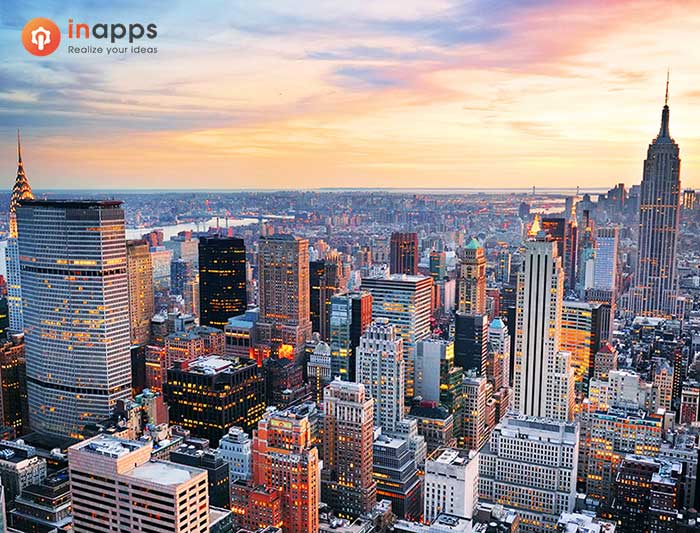
New York – Largest tech hubs in the US
Attractive government policies play a huge part in transforming the tech landscape in NY. In 2022, The NYC Economic Development Corporation (NYCEDC) and Cornell Tech launched the “Pilot: New York City” initiative to establish NYC as a global hub for urban innovation. This initiative focuses on streamlining processes and collaboration across sectors to accelerate urban innovation
New York City is currently home to major tech companies like Peloton, West Monroe, ZS, Blackline, Calm, Braze, Teachable, Celonis, JPMorgan Chase, and Datadog. These companies span various tech sectors, including digital media, professional services, health tech, fintech, and artificial intelligence. In 2021, the NYC tech ecosystem employed 369,000 people across tech and non-tech sectors, accounting for 7% of the city’s entire workforce. The average hourly wage in the tech ecosystem is $48/hour, significantly higher than the citywide average
2. Shenzhen, China
Often called “China’s Silicon Valley,” Shenzhen is a booming tech hub that’s home to companies like Huawei, Tencent, and ZTE.

Shenzhen when it was a fishing village
Shenzhen was originally a small fishing village in southern China’s Guangdong province. This city then went on to evolve from humble beginnings into a global manufacturing hub. In 1980, Shenzhen was designated as China’s first Special Economic Zone, kick-starting its journey towards becoming a massive manufacturing center. The city has now become a major manufacturing center for electronics and other tech products like gadgets, computers, and phones for foreign firms, including giants like Apple and Samsung.
Huawei Corp., one of the largest global suppliers of telecom equipment and the biggest manufacturer of mobile devices in China boasts an expansive main office in Shenzhen. The city is also home to other prominent tech giants, including Tencent Holdings, Baidu Inc., ZTE Corp., DJI Technology, and many other internationally acclaimed companies.

Shenzhen now
Shenzhen boasts a massive pool of tech talent, estimated at over 12 million in 2023 and still growing. Tech workers in this city are renowned for their expertise in hardware manufacturing, electronics, and telecommunications. The tech hub is home to numerous prestigious universities like Southern University of Science and Technology (SUSTech), so it’s no wonder this tech hub attracts countless IT students each year. The overall enrollment will be over 2 million in 2023. IT programs in China typically focus on technical skills, such as programming and software development.
Amid rising tensions between China and the US, the Chinese government has proposed a 20-point plan to boost funding for local tech companies in Shenzhen. They also seek help from Hong Kong which is a renowned financial hub in the world.
3. London
London, home to Alicorn’s headquarters, has evolved beyond being just Europe’s global financial center and is rapidly becoming one of the biggest tech hubs in the world. Today, many consider the city to be the world’s third most crucial innovation center behind New York and Shenzhen.
London tech firms attracted $19.8 billion in VC funding in 2022, a substantial amount despite the economic downturn. The city contributed significantly to the total UK tech funding, which amounted to $29.9 billion in 2022. London’s fintech sector was particularly strong, raising a total of $9.7 billion, more than any other city globally, and accounting for 42% of all European fintech funding.
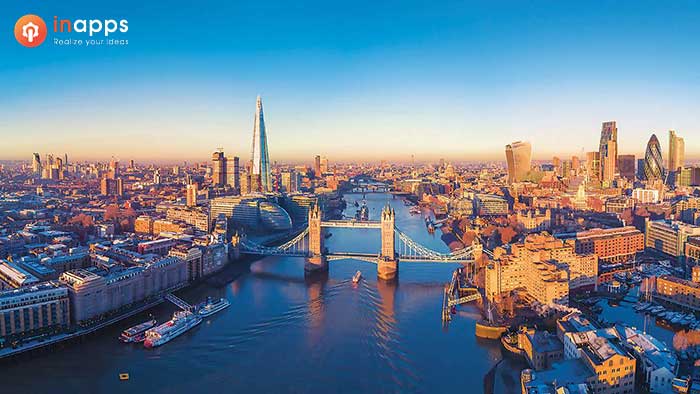
London – Biggest tech hubs in the world
The new Innovator Founder visa was effective from April 13, 2023. This visa combines the best aspects of the Start-up and Innovator visa categories, eliminating the requirement to show initial capital for investment and allowing individuals to undertake additional work. Unlike the Start-up visa, time spent in the UK under this new route counts towards qualifying for indefinite leave to remain, offering a more advantageous path to settlement in the UK.
* Start-up visa: In 2019, London launched a two-year visa route that allows early-stage but high-potential entrepreneurs to enter the country and establish a business to entice potential investors.
If you’re about to launch a startup, London has three things going for you: easy access to investors, consultants, and experts; networking opportunities; and a great talent pool. Meanwhile, if you are an established entrepreneur, you can benefit from the guidance of the city’s 125 incubators, which can help you grow your business even further. You can go to startups.co.uk to find more information regarding these incubators.
4. Bangalore, India
Nicknamed “India’s Silicon Valley,” Bangalore is a major center for IT and outsourcing. It’s home to companies like Infosys, Wipro, and Accenture, and it’s also attracting startups in fields like e-commerce and mobile technology.
What catapulted Bangalore’s IT sector growth is the liberalization of imports and exports of software and hardware. Between 1991 and 1997, the government reduced trade barriers and actively supported the growth of the software industry with measures like establishing export zones. Following that, software companies like Wipro and Infosys began to establish themselves in Bangalore, attracting Indian programmers and setting the stage for future growth. In 1985, Texas Instruments Inc. started its operations, marking the first multinational corporation to set up a development center in the city, leading to many more following suit.

Tel Aviv is emerging as a leading global tech hub, boasting the highest number of startups per capita in the world. The city hosts over 100 foreign R&D and innovation centers, including those of Amazon, Barclays, Facebook, and Google. It has notably established itself as a significant hub for AI development, with AI firms constituting over 40% of the city’s startups and employing a significant portion of the workforce. This growth spans several industries, including medical, automotive, aerospace, and cybersecurity.

Tel Aviv – Best tech cities in the world
Speaking of cybersecurity, Israel is a powerhouse in exporting cybersecurity products worth up to US$6.5 billion annually. This country was leading educational initiatives with the first Ph.D. program in cybersecurity and six university research centers. The Israeli government actively supports local businesses and startups, providing secured loans and encouraging market entry for institutional investors. Programs like the Ideation (Tnufa) Incentive Program assist entrepreneurs in developing innovative concepts, offering substantial grants and supporting both domestic and international entrepreneurs.
In detail, the Tnufa fund, catering to entrepreneurs within and outside Israel, promotes business ideas without incurring debt. Amidst the COVID-19 crisis, the Israeli government launched a support plan exceeding US$462 million, including over US$200 million specifically for small and medium-sized businesses. This initiative saw Israeli companies and startups raise nearly US$9.5 billion in capital in 2020.
6. Singapore
Singapore’s land area isn’t as large as Tokyo’s or Shanghai’s, but it’s an Asian financial and technology powerhouse. What the city-state lacks in size, it more than makes up for tenacity. Singaporeans are among the most hardworking people in the technology industry.
In 1981, the government started the Civil Service Computerisation Programme (CSCP) to increase the use of IT in different areas. Singapore’s transformation into a tech hub began ever since.
- Amazon
- Microsoft
- ByteDance
- Grab
- Sea
- Razer
These companies span various sectors like e-commerce, artificial intelligence, and social media, contributing significantly to the city-state’s robust tech ecosystem.
Alongside large corporations, the city-state has a thriving startup scene with over 4,000 startups. The information and communications sector alone was the seventh-largest contributor to Singapore’s economy in 2021, highlighting the significant role of tech workers in the nation’s economic landscape. Projections indicate that the tech industry could support almost 45,000 jobs in Singapore by 2027.
Toronto is a major financial and tech hub in Canada. It’s home to companies like Shopify, BlackBerry, and Manulife, and it’s also attracting startups in fields like AI and machine learning.
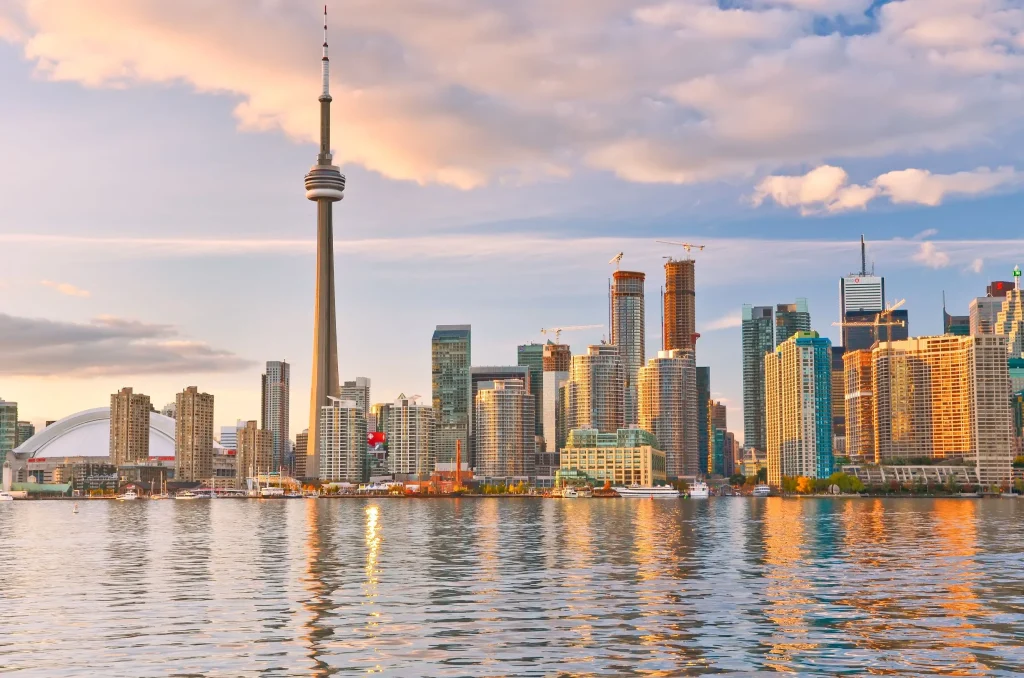
Toronto is home to many world-class universities like the University of Toronto and the University of Waterloo. These institutions have been instrumental in producing top talent in research and engineering for a thriving tech ecosystem. Many tech giants such as Shopify, Google, Apple, and Stripe have established their place here in Toronto – one of the world’s largest hubs of innovation and technological advancement.
As mentioned above, Toronto is particularly recognized as the “AI Capital of the World,” thanks to its world-class research and development in artificial intelligence. The city’s tech hub is known for its diverse workforce, drawing tech professionals from around the world and fostering a rich exchange of ideas and innovation.
Startup incubators like MaRS Discovery District nurture startups, providing them with resources, mentorship, and networking opportunities. Government initiatives and tax incentives have played a crucial role in fostering tech growth in the city. This robust support system makes Toronto an ideal breeding ground for startups and an attractive destination for entrepreneurs looking to turn innovative ideas into reality
8. Stockholm, Sweden
Ranking 9th on the list is Stockholm which is a major tech hub in Scandinavia. Stockholm is celebrated as Europe’s most innovative city and boasts one of the best startup ecosystems worldwide.
The city’s commitment to tech competence began in the 1990s, with substantial investments in digital infrastructure and tax incentives to encourage home computer purchases. Today, Stockholm boasts a digitally-savvy population and one of the world’s largest fiber networks, providing secure and low-cost high-speed internet access
The city has been the starting point for several tech giants. Ericsson, the first tech company globally, continues to lead in telecommunications. Klarna, a major fintech player, and Spotify, a leader in music streaming, are other notable examples of Stockholm’s tech giants
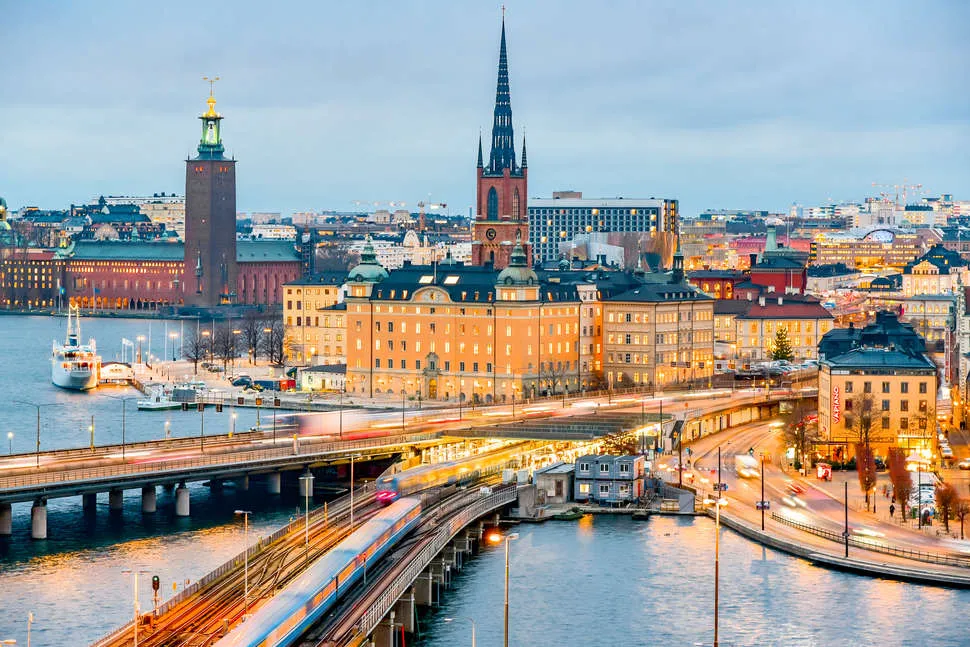
Stockholm houses nearly 3,000 startups and scaleups and has more tech unicorns per capita than any region globally, except Silicon Valley. The city’s tech workforce is substantial, with 101,000 tech employees, illustrating its prominence as a tech hub.
Government policies in Sweden have played a crucial role in fostering this tech-friendly environment. A focus on green technology, life sciences, and research funding through agencies like Vinnova, the Knowledge Foundation, and the Swedish Agency for Economic and Regional Growth have been instrumental in this regard. Infrastructure policies, like the broadband strategy aiming for nationwide high-speed internet access by 2025, have also been pivotal
9. Tokyo
Tokyo is quickly becoming another hotspot for tech startups. Japan has been the world’s most active industrial robot manufacturer for decades, producing more than half of the global robotic supply. Today, Japan is one of the best places for fintech and other tech startups to make a name for themselves. According to the Global Financial Centres Index, the country is the third most competitive financial center globally.
Furthermore, the Tokyo Metropolitan Government established the Tokyo Financial Award in 2017. The award is given to financial institutions that provide innovative products and services that meet the needs of the people of Tokyo. It also aids in the promotion of ESG investments in the city. You can check out the Tokyo Financial Award 2023 on their official website.
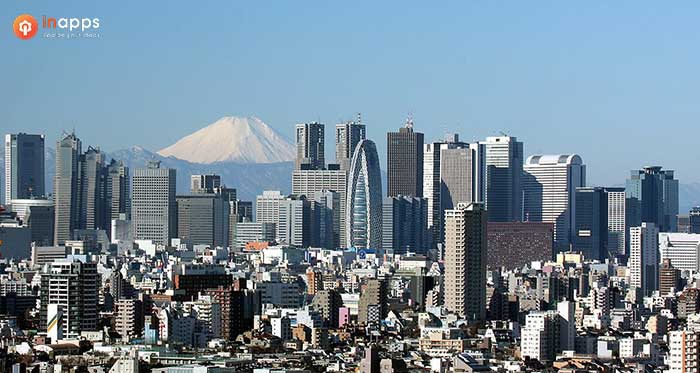
Tokyo – Best tech cities in the world
10. Ho Chi Minh
Last but certainly not least, Ho Chi Minh City – the fastest-growing city in Vietnam and the mighty city in Asia. This city, the economic heart of Vietnam, is rapidly transforming into a significant tech hub in Southeast Asia.
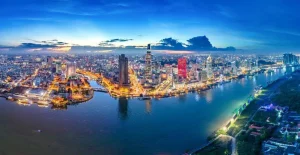
The city’s status as Vietnam’s commercial capital helps it attract a steady supply of workers for fields like professional services, IT, and hospitality.
The Vietnamese IT market boasts over 530,000 IT engineers, with 153 universities and IT training institutes producing approximately 50,000 IT graduates annually. Ho Chi Minh City accounts for about 55.3% of the country’s IT workforce, with the majority of software developers falling within the Millennial age bracket.
Plus, a variety of IT companies, including InApps Technology, Orient Software, Saigon Technology, TP&P Technology, etc are located in this busy technology hub. These companies specialize in various aspects of technology ranging from software development to digital innovation
Of course, the Vietnamese government has been instrumental in Ho Chi Minh City’s development into a smart city. With its national e-commerce transformation plan, the government aims to grow online businesses by up to 43% within the next five years. The city is also developing key smart city elements like a shared database, a smart city operations center, and centers for socioeconomic forecasts, simulation, and information safety.
Ho Chi Minh City is attracting foreign investment and collaboration, as seen with multinational firms like Joon Solutions expanding their operations to the city.
Conclusion
I hope this article on the biggest tech hubs in the world broadens your knowledge and answers your quest on which tech hubs are the biggest on a world scale. If you’re looking for the best in Ho Chi Minh Outsourcing, consider InApps. When you choose InApps for your outsourcing project, you will receive competitive pricing, complete transparency, and expert advice from our teams.
Similar posts that may interest you:
Let’s create the next big thing together!
Coming together is a beginning. Keeping together is progress. Working together is success.




